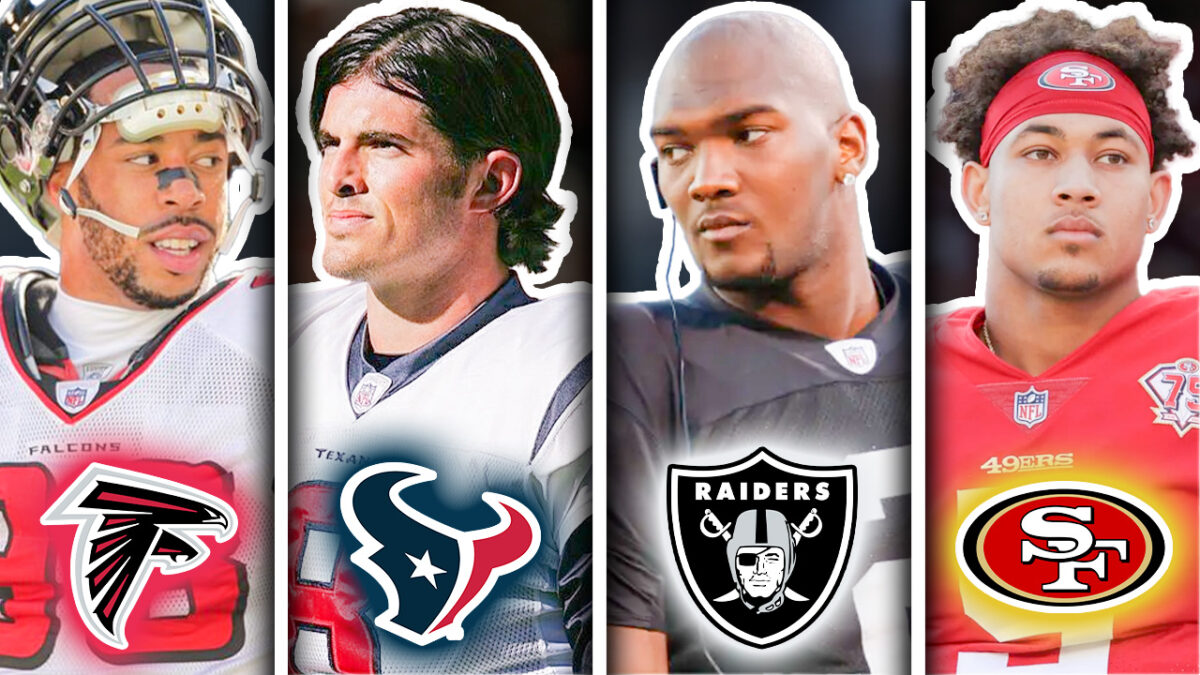
The NFL has seen many talented players do wonders for their teams, and rise to the top, as a Pro Bowler, Super Bowl Champion, and eventually a Hall of Famer. However, not everyone can make it to superstardom in the NFL. Some players just fall apart, can’t handle the pressure of being an NFL athlete, and become busts that exit the league within a couple of years.
Here are the worst draft busts for all 32 NFL teams.
Arizona Cardinals: Josh Rosen
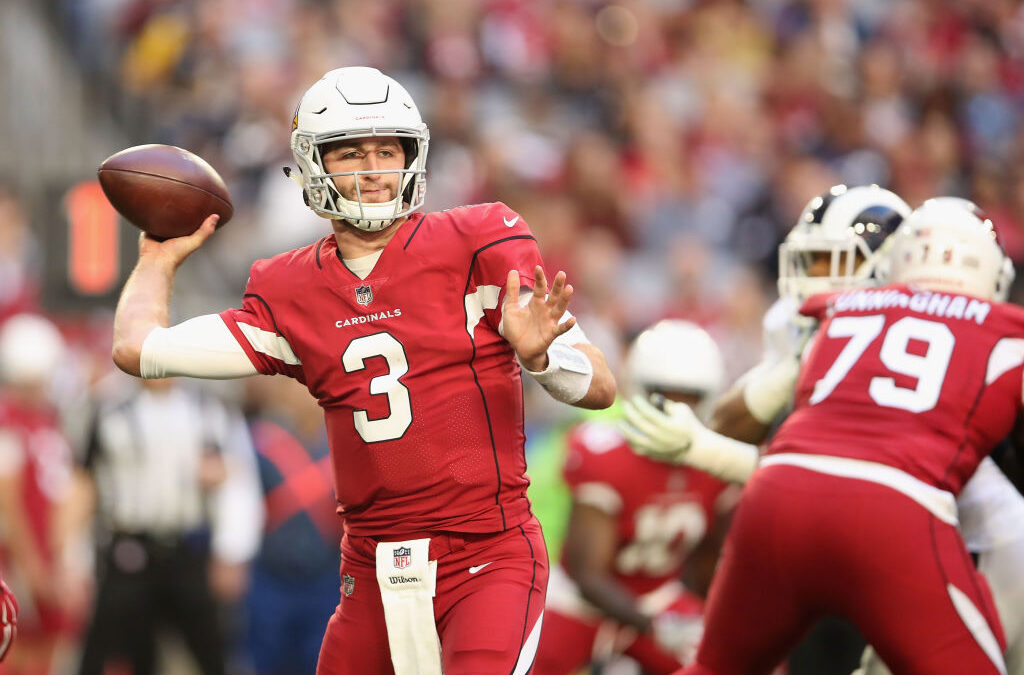
Josh Rosen was drafted by the Cardinals in the 2018 NFL Draft out of UCLA, with hopes that he would become the team’s next franchise quarterback and referred to the previous nine guys taken before him as “nine mistakes”. Instead, Rosen struggled at the professional level, won three of 10 games as a starter, threw 11 touchdowns against 14 interceptions, and was sacked 45 times in the desert. The Cardinals went through regime change in 2019, replaced then-head coach Steve Wilks with Kliff Kingsbury, and drafted Oklahoma Sooners quarterback Kyler Murray with the first pick of the 2019 NFL Draft.
Rosen was traded to the Miami Dolphins in 2019, then signed with the San Francisco 49ers in 2020, then the Atlanta Falcons in 2021, and had two brief stops with the Cleveland Browns and Minnesota Vikings practice squads in 2022. To add insult to injury, eight of the next 10 guys drafted after Rosen in the 2018 NFL Draft became Pro Bowlers. Will Rosen get another shot at the NFL? Who knows?
Atlanta Falcons: Jamal Anderson
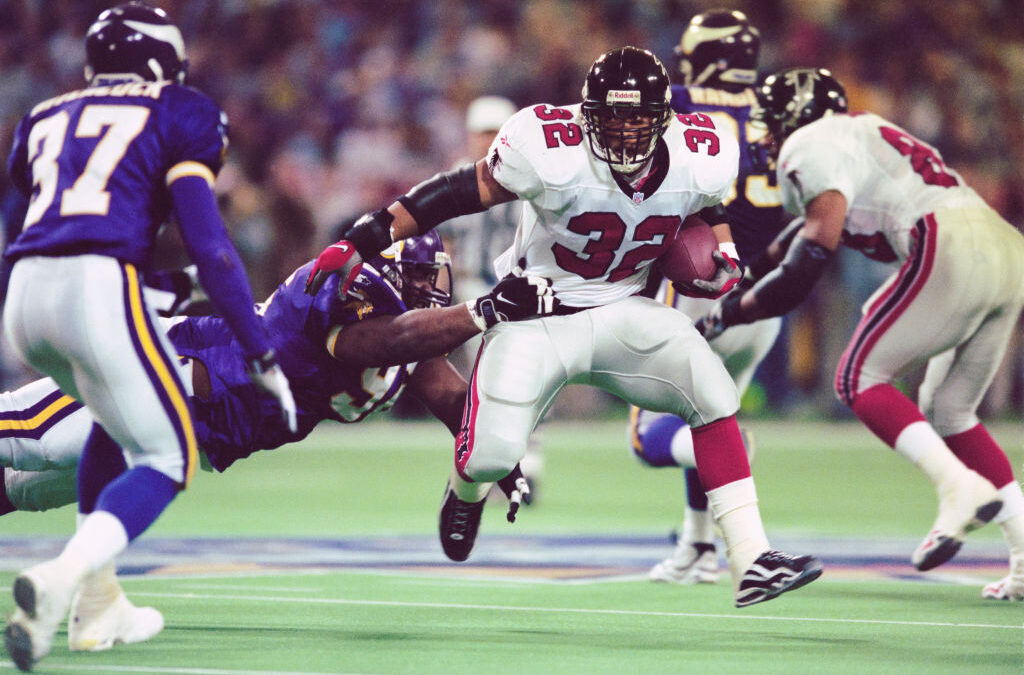
Jamal Anderson was a beast during his junior season at the University of Arkansas. Anderson had 17 sacks during his collegiate career and caused nightmares to opposing quarterbacks in the Southeastern Conference. Anderson was drafted by the Atlanta Falcons with the eighth pick of the 2007 NFL Draft. The Falcons hoped that Anderson would improve the team’s pass rush. Instead, he became a liability for the team and only had 4.5 sacks with the Falcons during his four seasons with the team, and got his first sack during his sophomore season in 2008 against Kyle Orton and the Chicago Bears.
Click on ‘Follow Us’ and get notified of the most viral NFL stories via Google! Follow Us
Anderson signed with the Indianapolis Colts in 2011 where he had three sacks and a fumble recovery returned for a 47-yard touchdown. The Falcons missed out on defensive talent like Patrick Willis, who went three picks after Anderson in the 2007 NFL Draft and became a seven-time Pro Bowler.
Baltimore Ravens: Kyle Boller
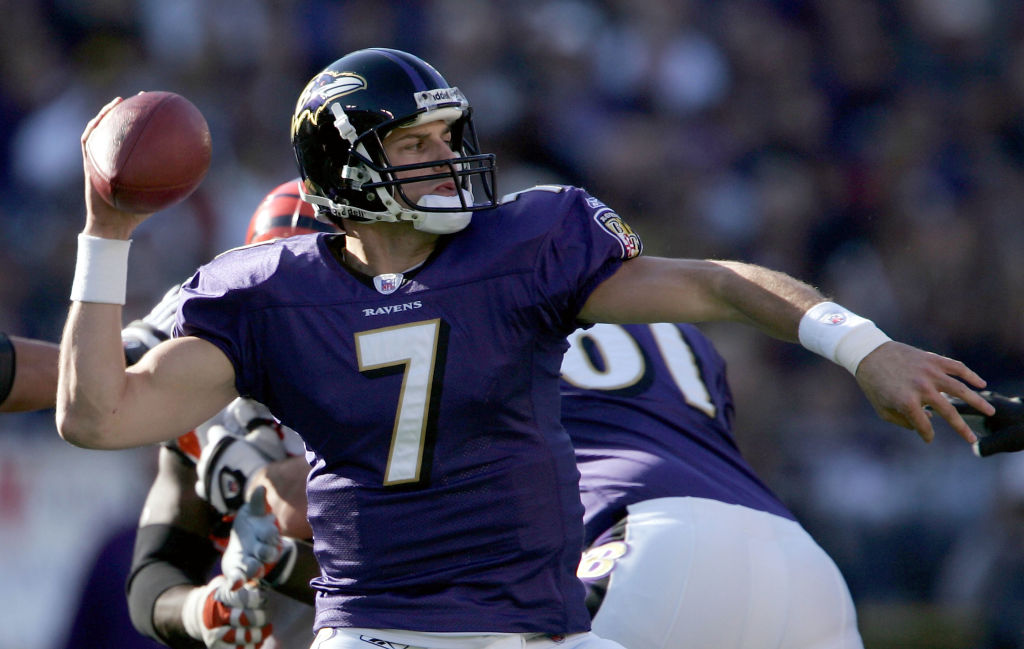
Boller had a decent collegiate career during his time with the California Golden Bears before coming to the NFL. Boller was drafted by the Ravens in the 2003 NFL Draft with the 19th pick. Boller struggled professionally while the Ravens’ defense kept the team relevant during the mid-2000s. Boller’s time in Baltimore was limited in 2006 and 2007, with Steve McNair on the team, as his struggles continued.
After a very disappointing 2007 season where the Ravens finished with a 5-11 and fired head coach Brian Billick, the team hired John Harbaugh and drafted Joe Flacco, who became the team’s primary starter after Boller suffered an injury during the preseason. Boller was released by the Ravens in 2009 and had varying stints with the St. Louis Rams and Oakland Raiders. Boller finished his NFL career with 48 touchdowns against 54 interceptions and was sacked 123 times.
Buffalo Bills: Tom Cousineau
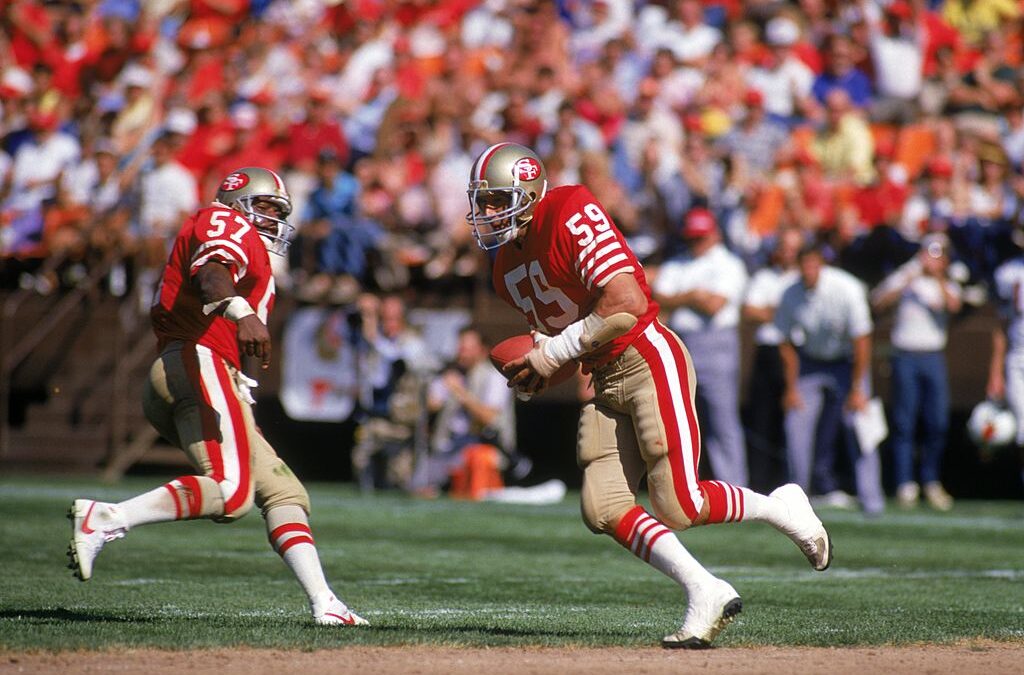
Tom Cousineau was drafted with the first pick of the 1979 NFL Draft by the Buffalo Bills, hoping he would improve the team’s defense. Instead, Cousineau never played a single snap for the Bills, as he took his talents up north to the CFL and played for the Montreal Alouettes who offered Cousineau more money than the Bills. Cousineau helped the Alouettes reach the 67th Grey Cup where they fell to Edmonton 9-17. Cousineau was named co-Grey Cup MVP along with running back David Green. Cousineau attempted to return to the NFL in the 1980s.
However, the Bills (who still had Cousineau’s NFL rights) traded him to the Cleveland Browns for draft picks. One of those picks became Jim Kelly, who helped the Bills reach four straight Super Bowls- which they ended up losing. Cousineau played in four seasons with the Browns and two seasons with the San Francisco 49ers and was never selected to the Pro Bowl, in his career.
Carolina Panthers: Rae Carruth
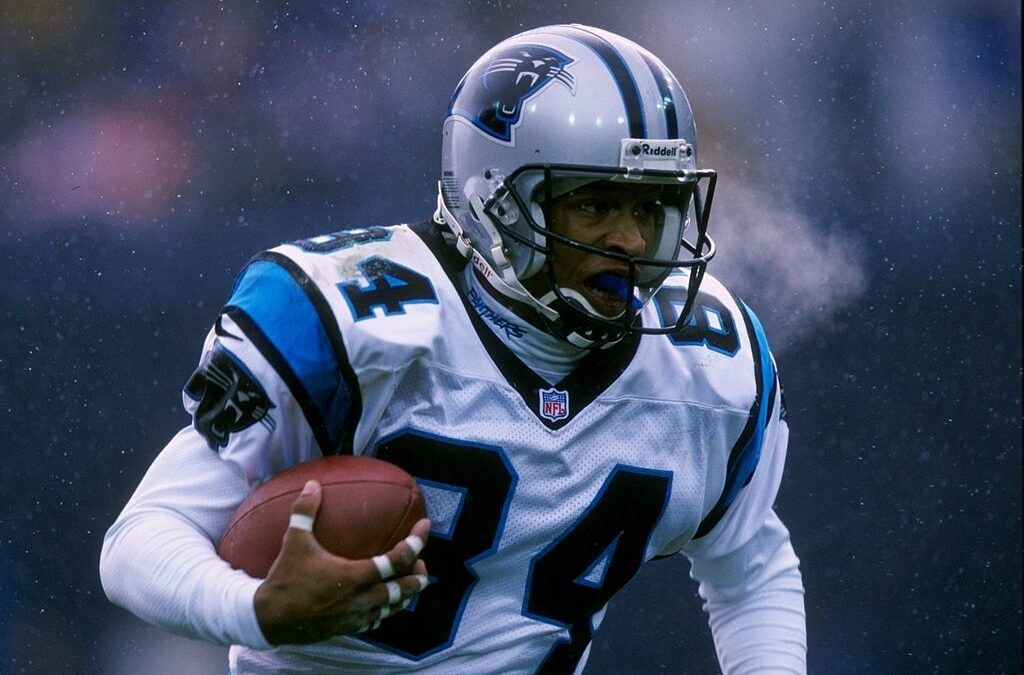
Carruth was drafted by the Panthers with the 27th pick of the 1997 NFL Draft. He did see some on-the-field success in the 1997 season, where he had 545 receiving yards and scored four touchdowns. However, Carruth is a story of tremendous loss. He was convicted of conspiracy to murder his then-pregnant girlfriend, Cherica Adams.
Carruth’s son, Chancellor Lee Adams, was saved but suffered brain damage and cerebral palsy. Carruth was sentenced to 18 years in prison. Chancellor Lee Adams graduated high school in 2021. What players do outside the league is the guiding force.
Chicago Bears: Kevin White
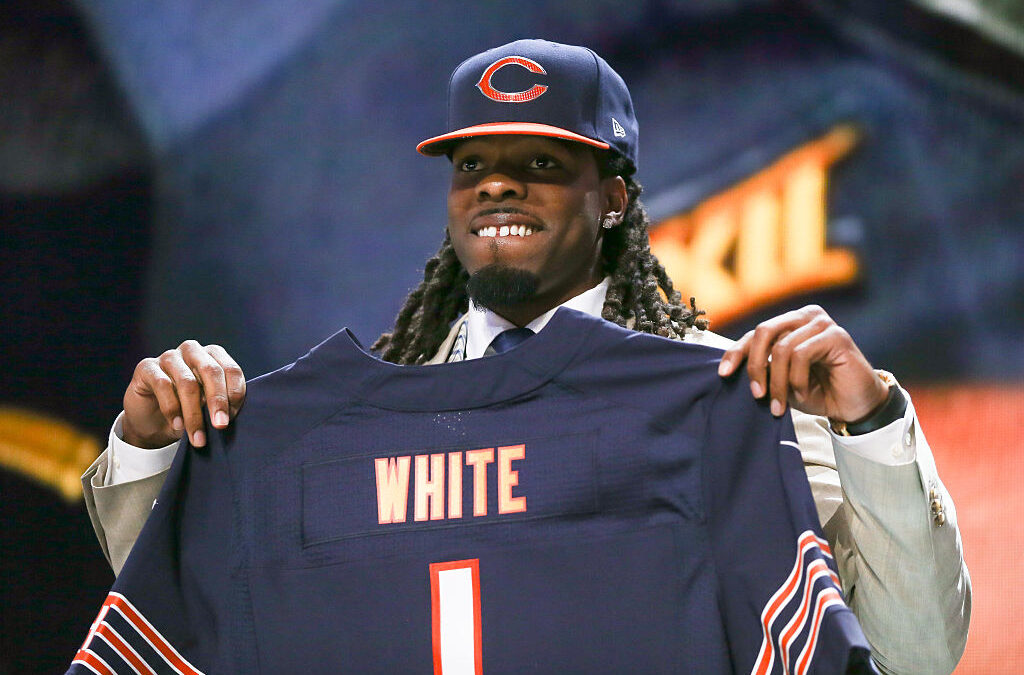
Kevin White had an impressive final season at the University of West Virginia. He had 109 receptions for 1,447 receiving yards and hauled in 10 touchdowns. White declared for the 2015 NFL Draft, where the Chicago Bears drafted him with the seventh pick. Unfortunately, injuries derailed White’s NFL chances with a shin injury. The injury worsened and turned into a stress fracture during organized team activities (OTAs) and White didn’t play a single snap of his rookie season. In 2016, after playing in four games, White injured his fibula and was on injured reserve for the rest of the season.
In 2017, White injured his shoulder blade, had two six-yard receptions, and was out for the season immediately after. White had a very brief stint with the Arizona Cardinals in 2019, but was released before the start of the regular season. White also had stops with the San Francisco 49ers and New Orleans Saints on their practice squads. Meanwhile, Tyler Lockett and Stefon Diggs were drafted in the third and fifth rounds respectively, and became superstars. White is currently a free agent. Will he sign with another NFL team in the future and be healthy for the 2024 season? Who knows? We’ll just wait and see.
Cincinnati Bengals: Ki-Jana Carter
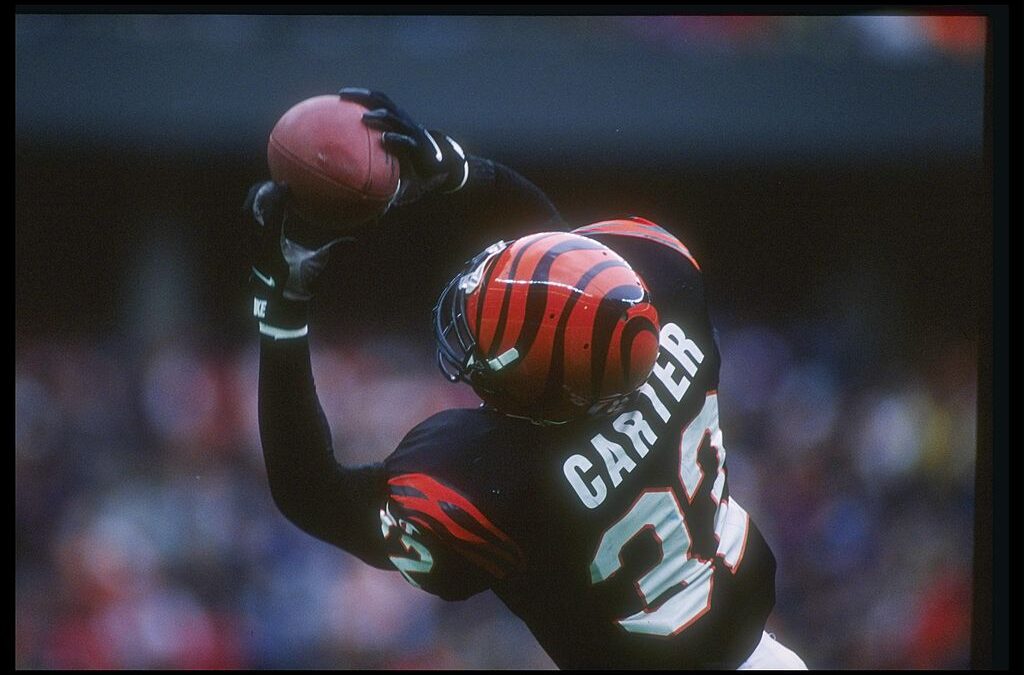
Ki-Jana Carter was a star running back at Penn State University with two 1,000-rushing-yard seasons under his belt. The Cincinnati Bengals traded up with the newly formed Carolina Panthers, to get the first pick and draft, Carter. However, Carter was struck by the injury bug as he suffered a torn ligament in his knee, in the preseason, which kept him out for the entire 1995 season. Carter suffered a torn rotator cuff in his left shoulder, in his 1997 season. Carter played in one game in 1998 and missed the rest of that season, after suffering a broken wrist in a game against the Tennessee Oilers.
Carter was also out in the 1999 season, after suffering a dislocated right kneecap in a game against the Carolina Panthers. Carter sat out the entire 2000 season and had brief stops with Washington in 2001, the Green Bay Packers in 2002 (although he was cut before the start of the regular season), and spent his last two seasons in the NFL with the New Orleans Saints from 2003 until 2004. Carter was also the last running back to be selected with the first overall pick of the NFL Draft.
Cleveland Browns: Johnny Manziel
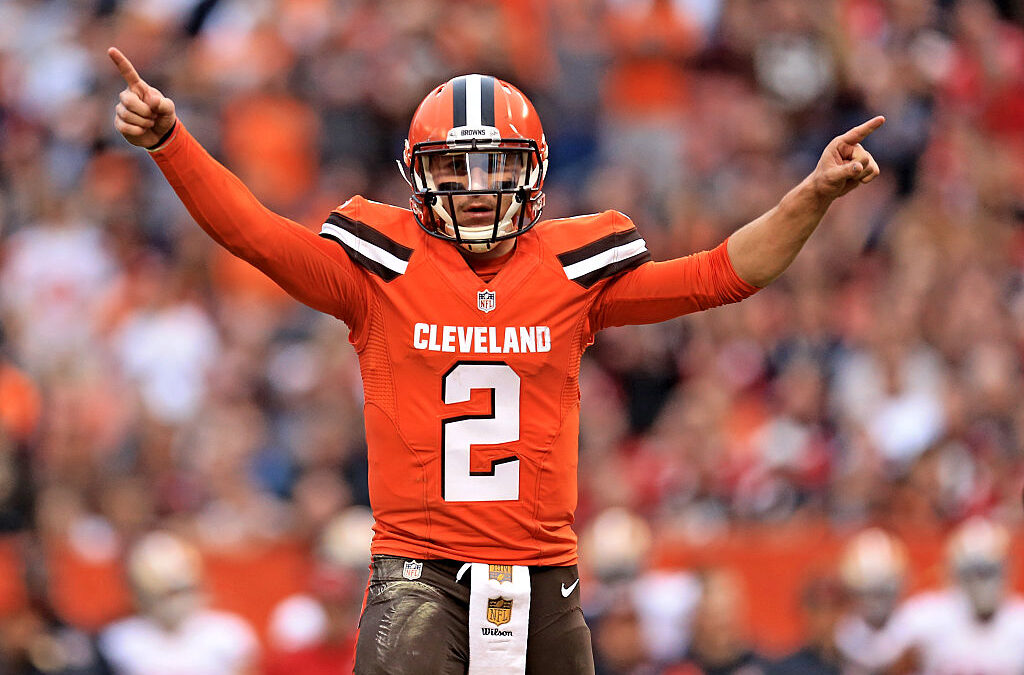
Where to begin with the Browns? The Browns have had so many draft busts over the years. The one draft bust that stung Cleveland, was none other than Johnny Manziel. Manziel was a superstar at Texas A&M University where he became the first freshman to win the Heisman Trophy, in 2012. After his sophomore season for the Aggies, Manziel declared for the 2014 NFL Draft. He was selected by the Browns 22nd overall. Manziel’s on-field production was awful, as he threw seven touchdowns against seven interceptions in his two years in Cleveland. Manziel also partied off the field, and his partying lifestyle caught up to him as he missed the final game of the 2015 season, partying at a Las Vegas nightclub.
The next two quarterbacks taken after Manziel in the 2014 NFL Draft were Teddy Bridgewater and Derek Carr, who made the Pro Bowl in their respective careers. Manziel attempted a career comeback in the CFL with the Hamilton Tiger-Cats and the Montreal Alouettes, but that comeback went nowhere.
Dallas Cowboys: Taco Charlton
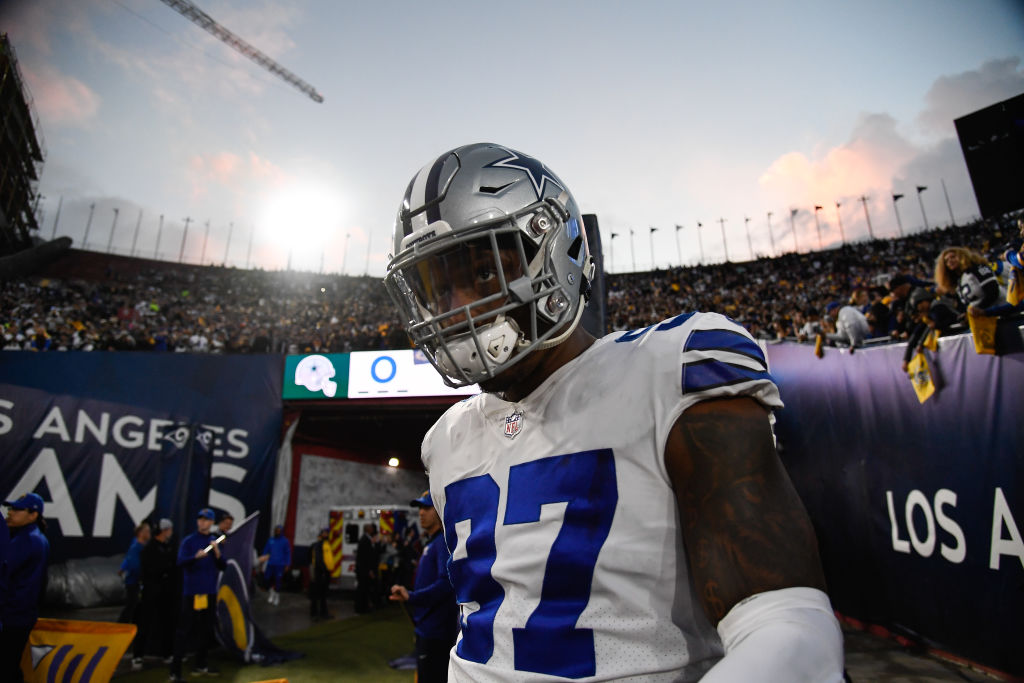
The Dallas Cowboys were looking to improve their pass rush and possibly try and repeat as NFC East champions for the 2017 season. The Cowboys selected Charlton with the 28th pick of the 2017 NFL Draft. Charlton had four sacks and started in seven games during his two seasons in Dallas. Charlton had stints with the Miami Dolphins in 2019, where he had five sacks, the Kansas City Chiefs in 2020, the Pittsburgh Steelers in 2021, and the Chicago Bears in 2022.
Charlton was on the San Francisco 49ers in 2023 but was released before the season began. Meanwhile, some guy named T.J. Watt was drafted two picks later by the Pittsburgh Steelers and became a Pro Bowler, and was named the Defensive Player of the Year in 2021. Hopefully, Charlton gets another chance in the NFL soon.
Denver Broncos: Paxton Lynch
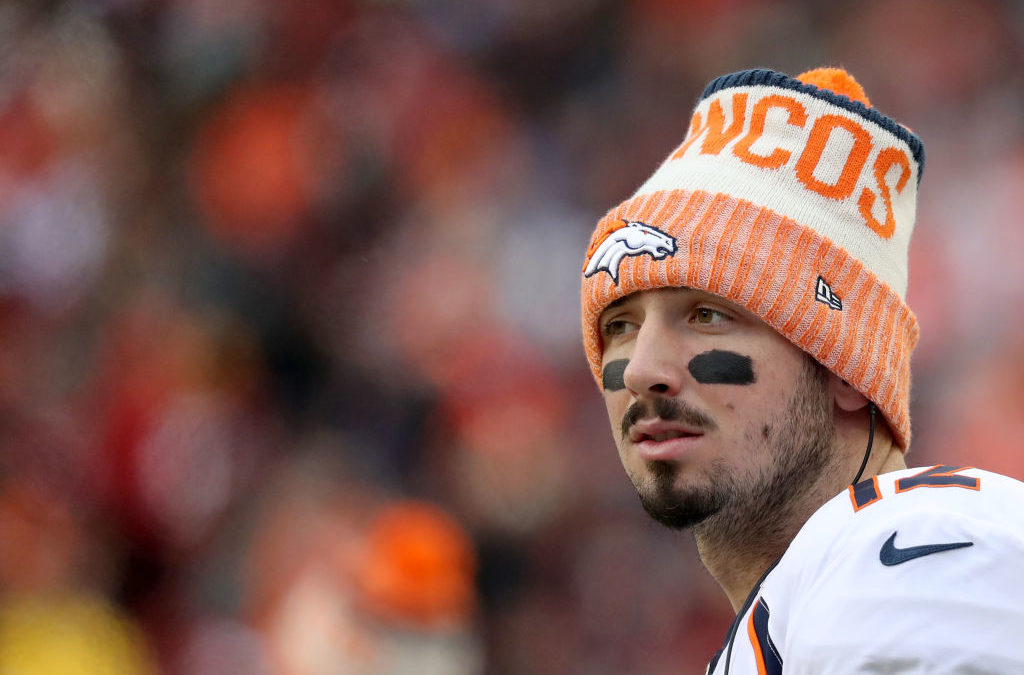
Ever since the Broncos won Super Bowl 50 and Peyton Manning retired immediately after, the team needed to find their next franchise quarterback. When the 2016 NFL Draft began, the Broncos thought they found themselves their next true quarterback in Paxton Lynch, who was taken 26th overall. Lynch struggled at the professional level and threw four touchdowns against four interceptions and had to deal with competition from Trevor Siemian who was the starter for the Broncos, at the time.
Lynch signed with the Pittsburgh Steelers in 2019, as a backup and had short stints with the CFL’s Saskatchewan Roughriders in 2021, the Michigan Panthers of the USFL in 2022, and the Orlando Guardians and San Antonio Brahmas of the XFL in 2023. Meanwhile, Dak Prescott was selected in the fourth round (135 overall) by the Dallas Cowboys and became a Pro Bowler and franchise quarterback.
Detroit Lions: Andre Ware
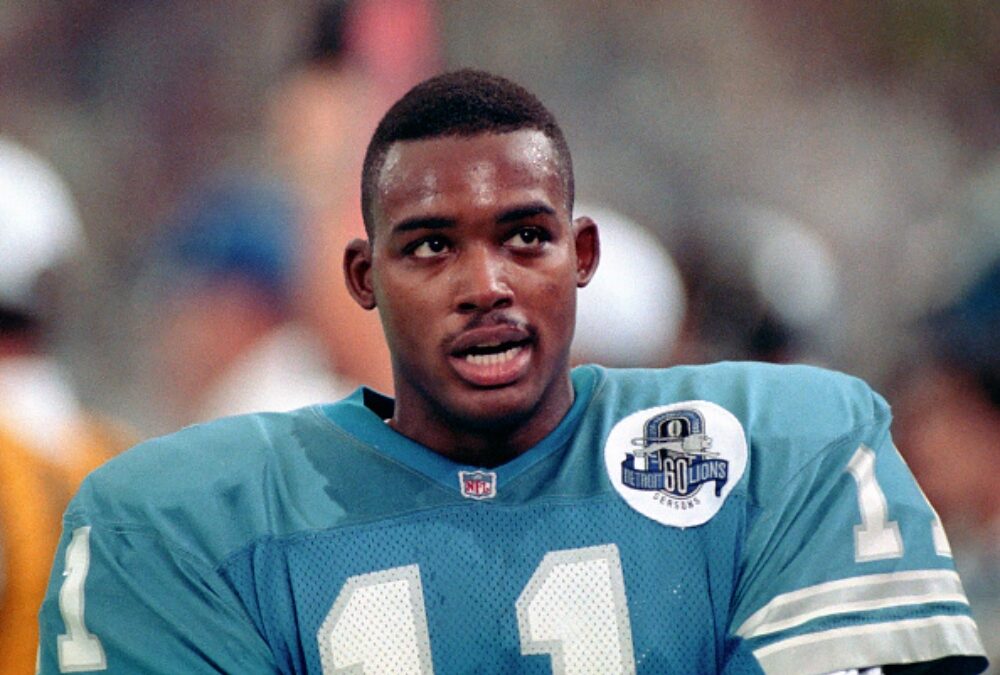
Ware was the Heisman Trophy-winning quarterback from the University of Houston. After leading the Cougars to a 9-2 record, Ware declared for the NFL Draft and was selected seventh overall by the Detroit Lions. Ware only played in 14 games and started in six of them during his four seasons in Detroit. He threw five touchdowns against eight interceptions. Then Lions’ head coach Wayne Fontes only put Ware into games, if the Lions were losing or out of playoff contention, as the team already had Rodney Peete and Erik Kramer on the roster.
After the 1994 season, Ware had very brief stints with the Los Angeles Raiders and Jacksonville Jaguars without making their final roster spots. Ware spent three seasons in the CFL with the Ottowa Rough Riders in 1995, the BC Lions in 1996, and the Toronto Argonauts in 1997 where he helped the team win the 85th Grey Cup against the Saskatchewan Roughriders 47-23. Ware was a part of a championship team, near the end of his playing career.
Green Bay Packers: Rich Campbell
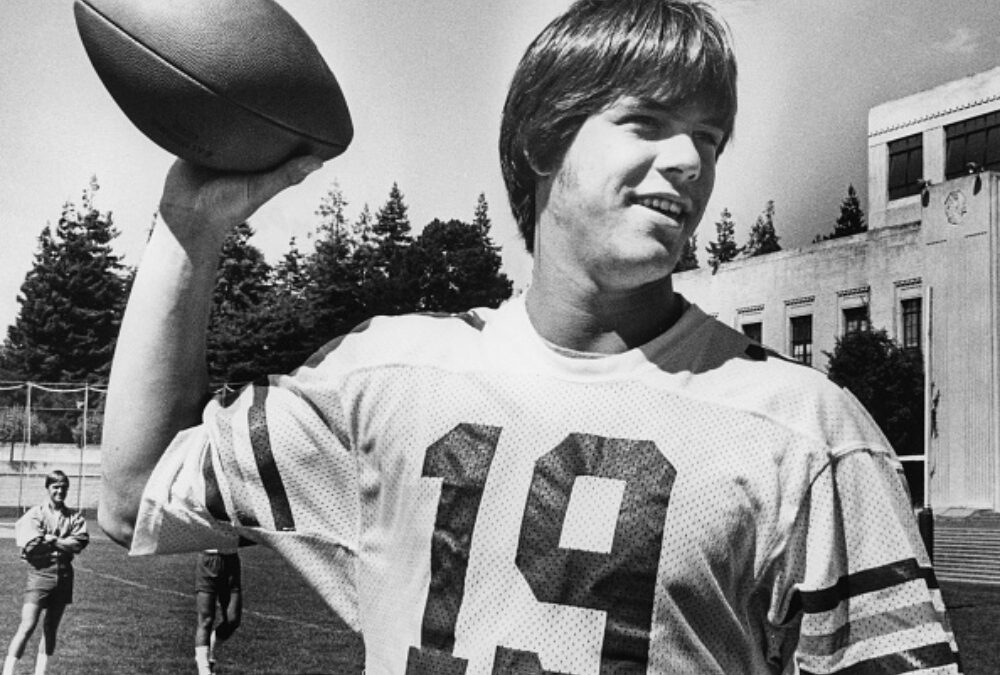
The 1970s and 1980s were dreadful for the Green Bay Packers. In 1981 under the direction of head coach Bart Starr, the Packers thought they found themselves their next franchise quarterback in Rich Campbell, with the sixth pick of the 1981 Draft. Instead, Campbell was a massive flop as he only played in seven games in three seasons with the Packers. Offensive coordinator Bob Schnelker didn’t trust Campbell’s arm.
Campbell threw three touchdowns against nine interceptions. Campbell later became a newspaper columnist for the Treasure Coast Newspaper. The Packers didn’t draft a quarterback in the first round until 2005 when they selected some guy named Aaron Rodgers, who went on to become a four-time NFL MVP and Super Bowl XLV champion with the team.
Houston Texans: David Carr
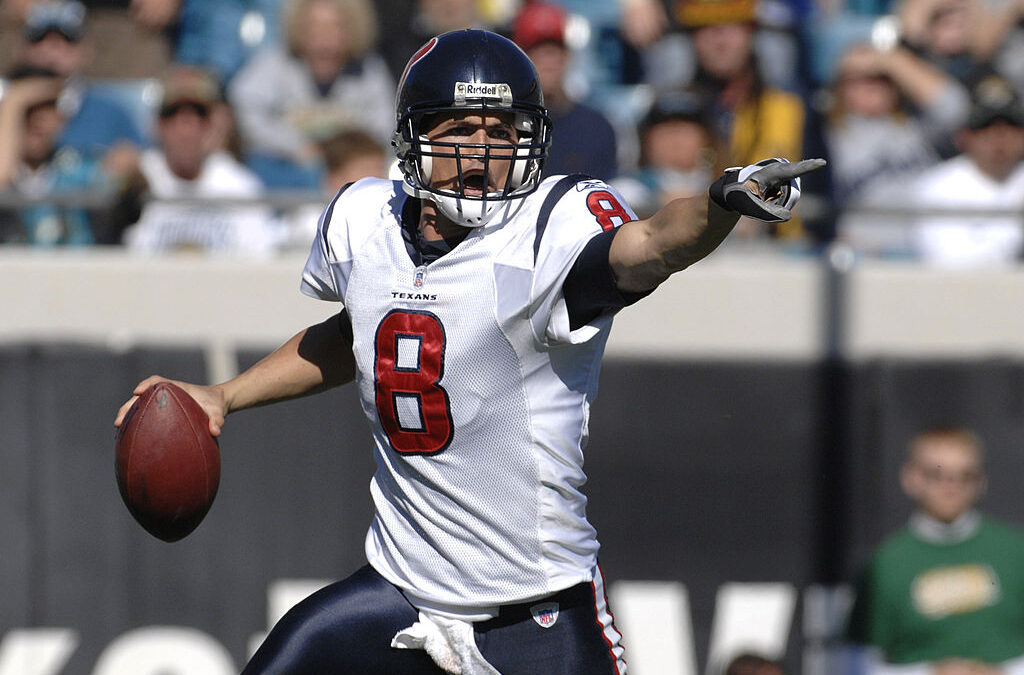
Carr was the first pick for the newly founded Houston Texans, in the 2002 NFL Draft, after a stellar collegiate career at Fresno State University. Unfortunately, the Texans never provided Carr the help he needed on offense and he flopped on the professional level. Carr threw 65 touchdowns against 71 interceptions in his NFL career. Carr also lacked good offensive line protection, during his tenure with the Texans.
Carr became backup for the Carolina Panthers, and San Francisco 49ers, and had two stints with the New York Giants where he was on the roster that won Super Bowl 46 against the New England Patriots. Carr is an analyst on the NFL Network and an offensive coordinator for Bakersfield Christian High School.
Indianapolis Colts: Jeff George
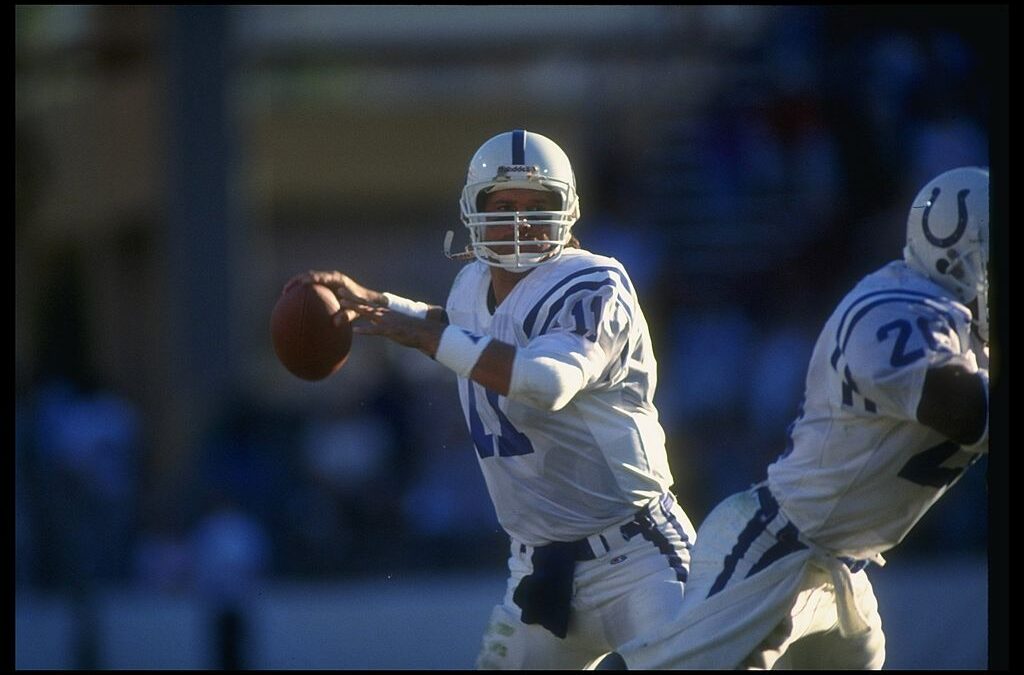
Jeff George was a talented quarterback for the Illinois Illini and won back-to-back Indiana football state championships. The Indianapolis Colts, who were looking to find their next quarterback, traded up with the Atlanta Falcons to draft George with the first overall pick in the 1990 NFL Draft. George threw 46 interceptions against 41 touchdowns and lost 35 out of 49 starts during his four seasons as a member of the Colts. In 1993, George refused to show up to training camp and demanded a trade.
Colts owner Jim Irsay threatened to fine him as he showed up to work. The Colts ended up trading George to the Falcons in 1994 where he helped the team reach the playoffs in 1995. However, George got into a heated argument with head coach June Jones, which led to him being suspended by the team, at the time. Jones spent seven more seasons in the NFL with the Oakland Raiders, Minnesota Vikings, Washington, the Seattle Seahawks, and the Chicago Bears. Wherever George went, he always got into arguments and on-field altercations with his coaches.
Jacksonville Jaguars: Justin Blackmon
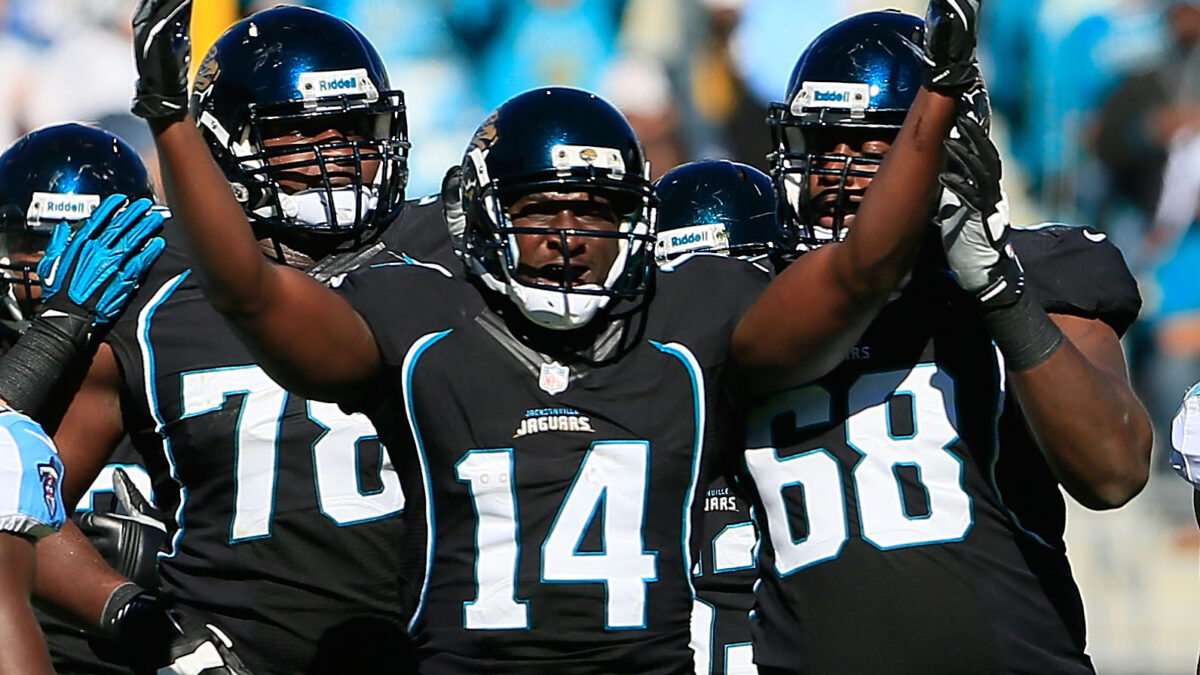
Blackmon was a star wide receiver for the Oklahoma State Cowboys. Blackmon was drafted by the Jaguars with the fifth pick of the 2012 NFL Draft. Blackmon never got his NFL career going, as he had off-the-field trouble with driving under the influence arrests in 2012 and 2015. Blackmon was suspended multiple times for his troubles and only got to play in two seasons.
Blackmon had 1,280 receiving yards and scored six touchdowns in his two seasons in Duval County. To make matters more insulting, five of the seven guys drafted after Blackmon became Pro Bowlers. This pick stung the Jaguars until they drafted Allen Robinson, in 2014.
Kansas City Chiefs: Todd Blackledge
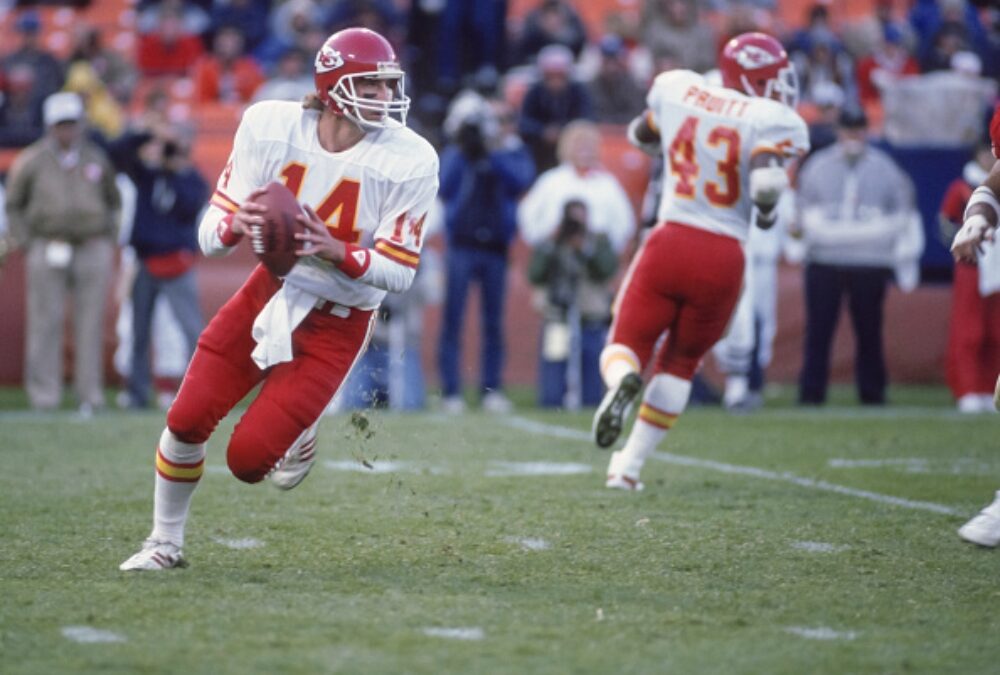
Even though the Chiefs are having the time of their lives with Patrick Mahomes, there was a time when they were in quarterback purgatory and had their struggles. In the 1983 NFL Draft, the Chiefs drafted Todd Blackledge, with the seventh pick, hoping he would be their franchise signal caller.
Instead, Blackledge struggled in the NFL and threw 29 touchdowns against 38 interceptions during his seven-season stretch with the Chiefs and Pittsburgh Steelers. To make things more embarrassing, Jim Kelly and Dan Marino were drafted after Blackledge in the same draft class.
Las Vegas Raiders: JaMarcus Russell
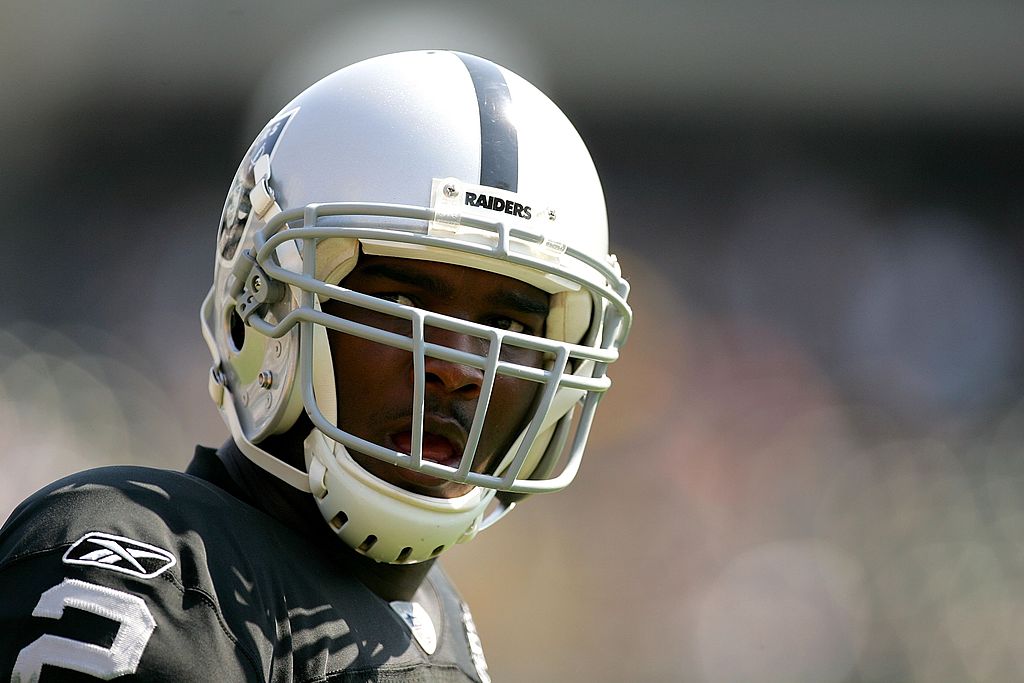
Arguably one of the biggest draft busts in NFL history, JaMarcus Russell lasted three seasons with the then-Oakland Raiders. Russell threw 18 touchdowns against 23 interceptions during his time with the Raiders and didn’t watch the game film as his coaches gave him blank tapes at the time to see if he actually watched the film to improve his game.
Meanwhile, some guy named Calvin Johnson was selected one pick after Russell in the 2007 NFL Draft. After the Raiders released Russell, he never played in the NFL ever again.
Los Angeles Chargers: Ryan Leaf
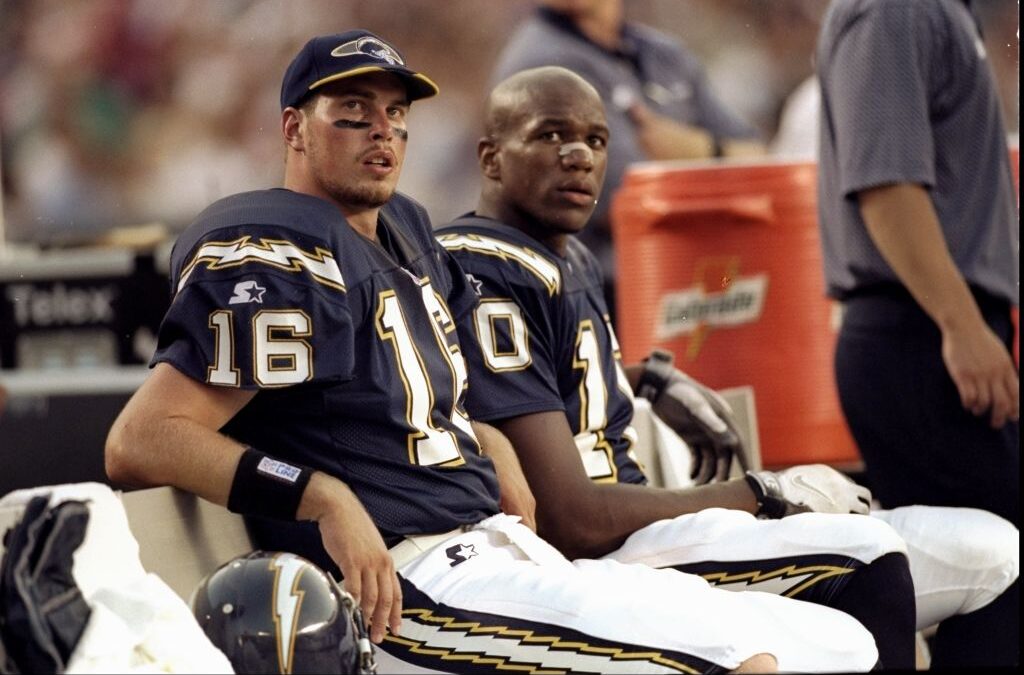
The 1998 NFL Draft was one of the most hyped draft classes of all time. The class featured Peyton Manning, Ryan Leaf, Charles Woodson, and Randy Moss. Manning was selected first overall by the Indianapolis Colts while Leaf went second overall to the then-San Diego Chargers.
While Manning became arguably one of the greatest quarterbacks of all time, the opposite happened for Leaf, as he played very inconsistently and threw more interceptions than touchdowns during his time in the NFL. Leaf last played for the Dallas Cowboys in 2001 and ran into legal issues afterward. He has since cleaned up his image.
Los Angeles Rams: Lawrence Phillips
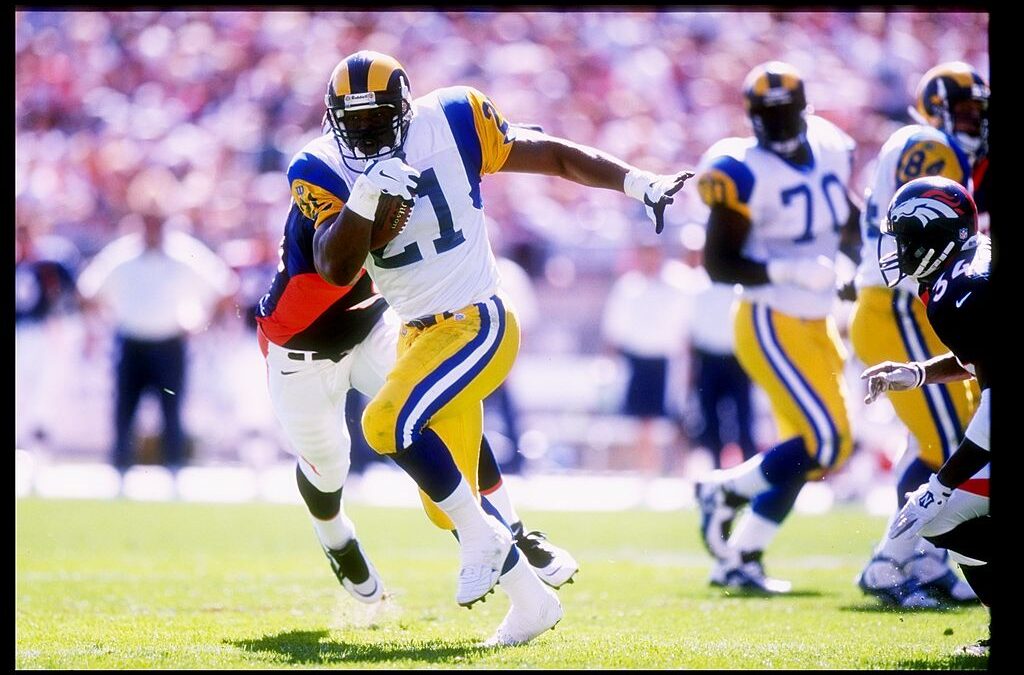
Phillips was a superstar at the University of Nebraska and was selected sixth overall in the 1996 NFL by the then-St. Louis Rams. The Rams traded Jerome Bettis to the Pittsburgh Steelers and hoped Phillips would replace Bettis’ production. Phillips was very inconsistent during his tenure with the Rams as he only had 1,265 rushing yards in two seasons, scored 12 rushing touchdowns, and one receiving touchdown. After the Rams released Phillips, he signed with the Miami Dolphins but only played in two games for the team as he was released after he pleaded no contest to assaulting a woman at a nightclub.
Phillips had stints with the Barcelona Dragons of NFL Europe in 1998, last played in the NFL in 1999 with the San Francisco 49ers, and played in the CFL for two seasons with the Montreal Alouettes and Calgary Stampeders where he helped the Alouettes win the 90th Grey Cup against Edmonton in 2002. Phillips was arrested for assault in 2005, convicted of assaulting his former girlfriend in 2009, and murdered his cellmate in 2015. Phillips died in prison in 2016.
Miami Dolphins: Dion Jordan
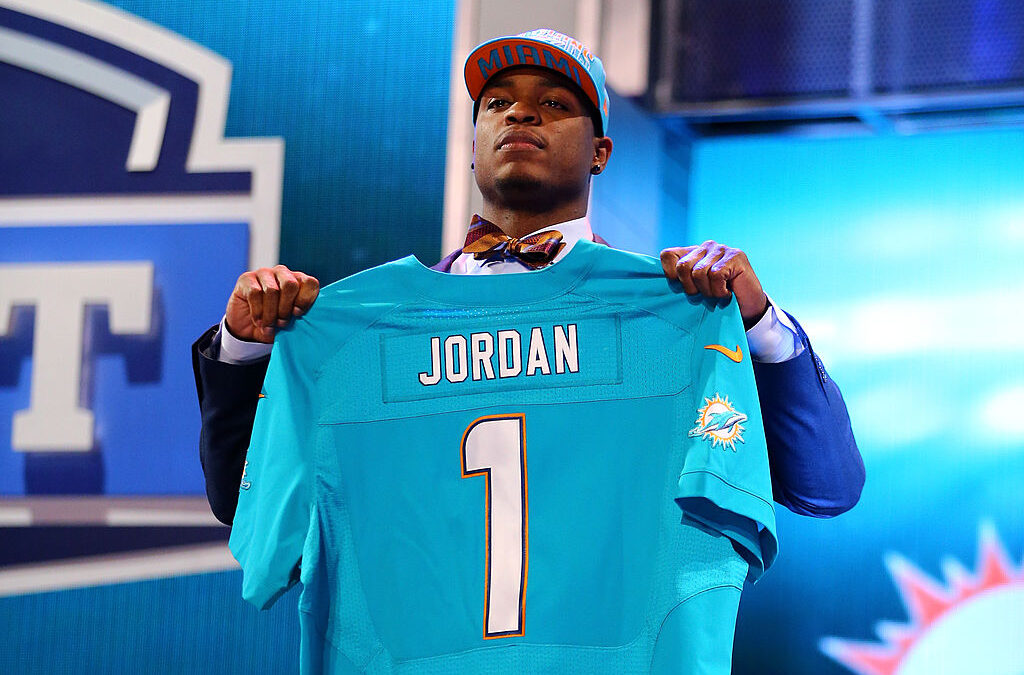
Jordan was a force to be reckoned with, at the University of Oregon, with 14.5 sacks during his four years with the Ducks. The Miami Dolphins did everything they could to make sure Jordan was a Dolphin by drafting him third overall in the 2013 NFL Draft. Jordan’s rookie season wasn’t the best, but wasn’t the worst, as he had 26 tackles, two sacks, and two pass deflections. Jordan’s troubles came in 2014 when he was suspended for violating the NFL’s performance-enhancing drug policy for four games and an additional two games that same season.
Jordan was suspended for the entire 2015 season due to violating the NFL’s PED policy. Jordan didn’t play in 2016 and was released by the Dolphins in 2017. Jordan had stints with the Seattle Seahawks from 2017-18, the Oakland Raiders in 2019, and last played in the NFL with the San Francisco 49ers in 2020. To make matters more insulting to the Dolphins, the next two guys drafted after Jordan became Pro Bowlers.
Minnesota Vikings: Troy Williamson
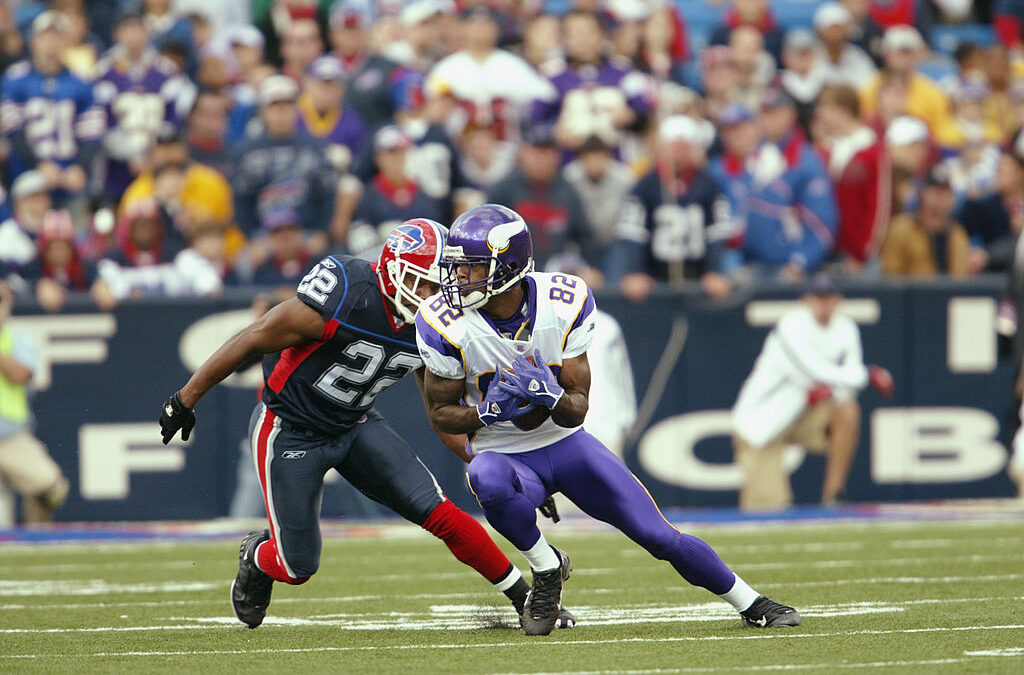
Looking to find a new star wide receiver to replace Randy Moss (who was traded to the Oakland Raiders), the Vikings drafted Williamson from the University of South Carolina with the seventh pick of the 2005 NFL Draft. Williamson dropped key deep passes in games and struggled on the professional level.
Williamson spent three seasons with the Vikings and two with the Jacksonville Jaguars where he had 87 receptions for 1,131 receiving yards and four touchdowns for his five-year career in the NFL. To make this pick more insulting for the Vikings, Roddy White was selected 20 spots after Williamson and became a four-time Pro Bowler.
New England Patriots: Chad Jackson
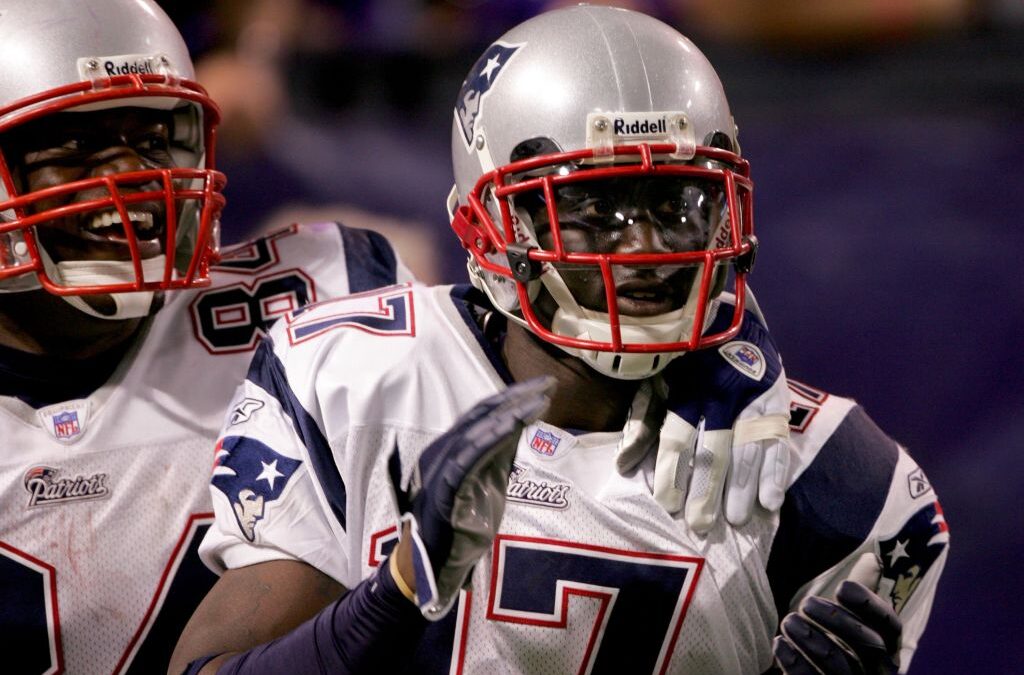
Arguably one of the biggest busts in the Bill Belichick Era, Jackson was supposed to be a game-changing wide receiver for the Patriots. Jackson dealt with injuries, only played in 18 games, and scored three touchdowns in his NFL career. Jackson spent one season with the Denver Broncos in 2008 where he caught one reception for 19 yards.
He never played in the NFL regular season after his stint with the Broncos. To make this pick even sillier, the Patriots traded 16 draft spots with the Green Bay Packers to select Jackson while the Packers used the pick the Patriots traded them to select some guy named Greg Jennings, who became a two-time Pro Bowler and a Super Bowl XLV Champion.
New Orleans Saints: Russell Erxleben
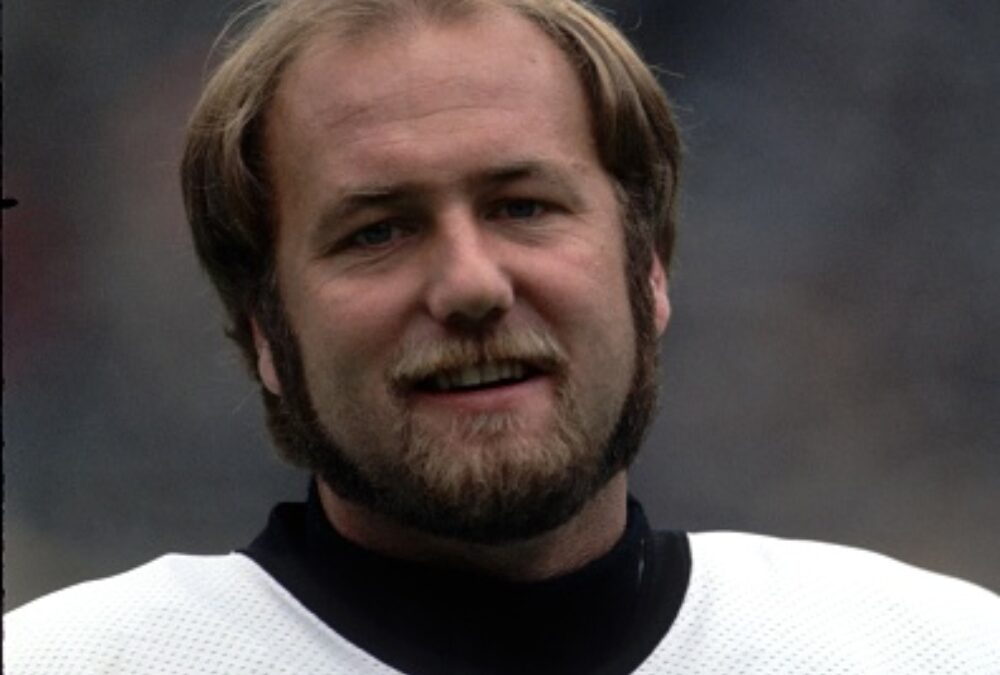
The Saints shockingly drafted Erxleben with the 11th pick of the 1979 NFL Draft. Erxleben is the second-highest-drafted kicker and the highest-drafted punter in NFL history. The Saints hoped he would be a dual-threat kicker, at the time. Erxleben didn’t even become the Saints’ starting kicker and was kept as a punter for the Saints until 1983.
Erxleben became a financial investor after his NFL career and was arrested for fraud in 1999 and was arrested for being involved in an alleged Ponzi scheme in 2013. Erxleben has been out of prison since July 2019. To make this draft pick even sadder, Hall of Fame tight end Kellen Winslow was selected two picks later.
New York Giants: Cedric Jones
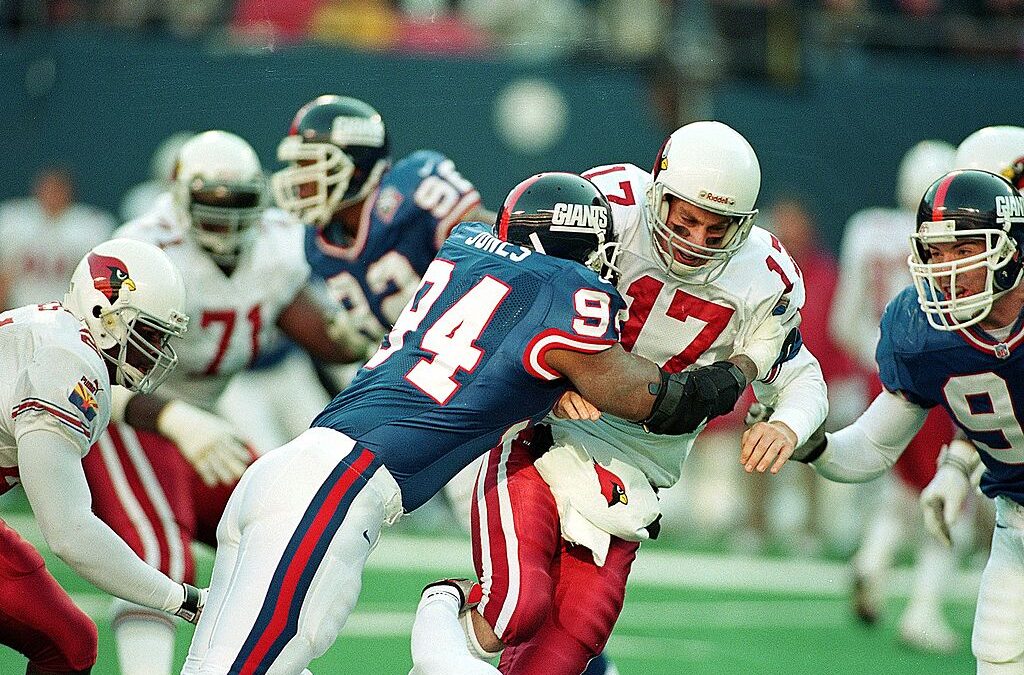
Jones was a defensive end selected by the New York Giants fifth overall in the 1996 NFL draft. Jones had vision problems that made him play on the right side of the defensive line and a hamstring injury that hurt his play in his rookie year. Jones didn’t get his first sack until the 1998 season. Jones finished his career with 15 sacks and 151 tackles.
Jones did sign with the St. Louis Rams in 2001 but suffered an injury before the season began. At the time, the Giants missed out on Ray Lewis, who went 26th overall, and Zach Thomas, who was drafted 154th overall in the fifth round, who both became Hall of Famers.
New York Jets: Dee Milliner
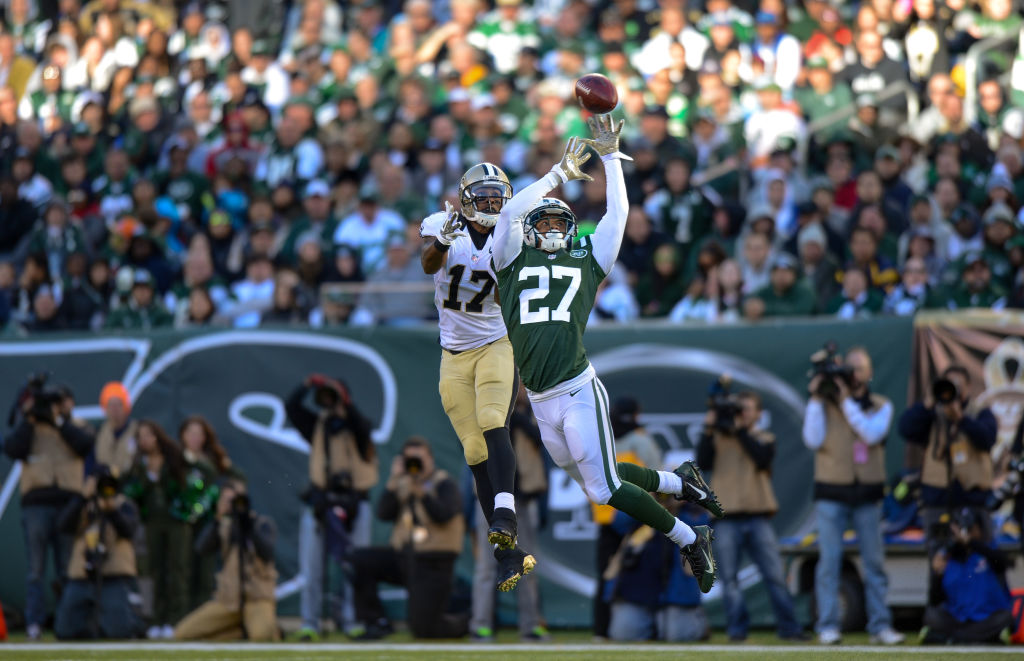
After trading Darrelle Revis to the Tampa Bay Buccaneers, in the 2013 offseason, the Jets needed a new shutdown corner in their secondary. Milliner was selected ninth overall in the 2013 NFL Draft. Milliner’s NFL career started rough, as he was benched three times due to his abysmal performance on the field. Milliner did secure three interceptions by the end of his rookie season. Unfortunately, injuries plagued Milliner’s chances of being a star cornerback with the Jets, as he injured his Achilles in 2014 and suffered a wrist injury in 2015.
The Jets released Milliner after the 2016 season and he hasn’t been back in the NFL ever since. Other cornerbacks that were drafted in 2013 included Desmond Trufant (22nd overall), Xavier Rhodes (25th overall), Darius Slay (36th overall), and Tyrann Matthieu (69th overall) to name a few guys who all became Pro Bowlers.
Philadelphia Eagles: Jay Berwanger
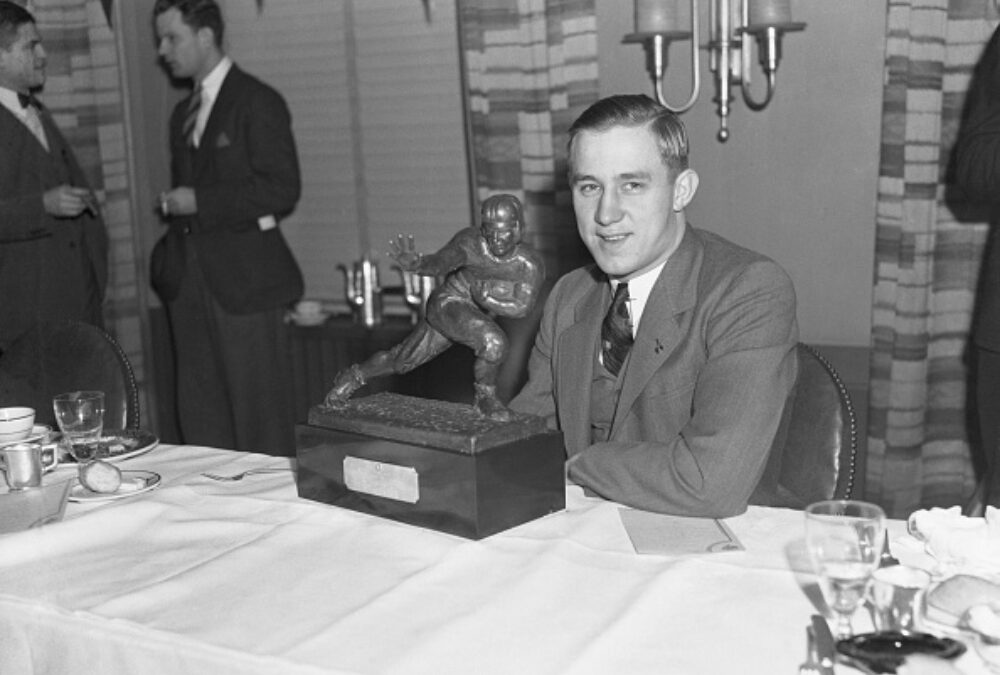
Normally, getting drafted in the NFL first overall is a huge deal. Back in 1936, Jay Berwanger, the first Heisman Trophy winner, was also the first football player ever drafted in the NFL’s inaugural Draft by the Philadelphia Eagles. However, Berwanger wanted a high salary at the time, and the Eagles weren’t going to meet that expectation.
The Eagles traded Berwanger to the Chicago Bears. He chose not to play for them and trained for the 1936 Olympics instead. The Eagles only won one game in the 1936 season. Berwanger later became a coach for his alma mater, the Chicago Maroons, and worked in a rubber factory. He admitted he regretted not taking the offer to play for the Bears under George Halas.
Pittsburgh Steelers: Troy Edwards
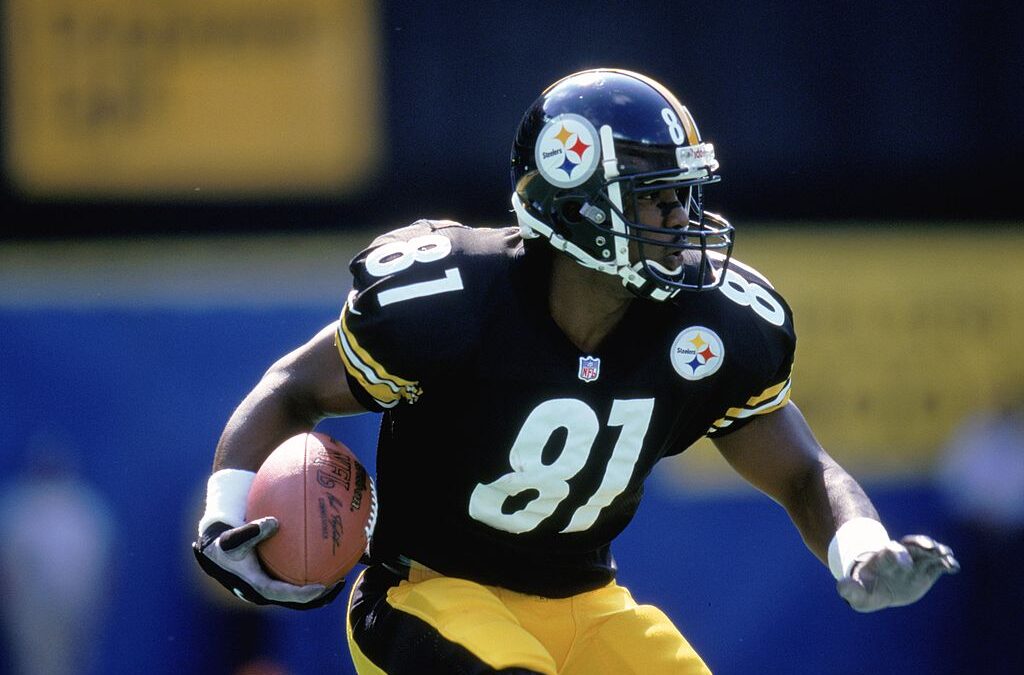
The Steelers hoped Edwards would become the team’s new number-one wide receiver when they drafted him 13th overall in 1999 after the Arizona Cardinals beat them to drafting David Boston, earlier in the draft. Edwards had a decent rookie year where he caught 61 receptions for 714 yards and scored five touchdowns. After that, Edwards’ production and play began to decline as the Steelers favored Plaxico Burress (who was drafted eighth overall in 2000), and Pro Bowler Hines Ward.
In 2001, Edwards wanted out of Pittsburgh and got his wish in 2002 when he was traded to the St. Louis Rams. Edwards also played for the Jacksonville Jaguars for two seasons and last played in the NFL in 2005 for the Detroit Lions. Edwards finished his football career with one season with the Grand Rapids Rampage in the Arena Football League. Edwards admitted he regretted being immature about his football growth during his time with the Steelers.
San Francisco 49ers: Trey Lance
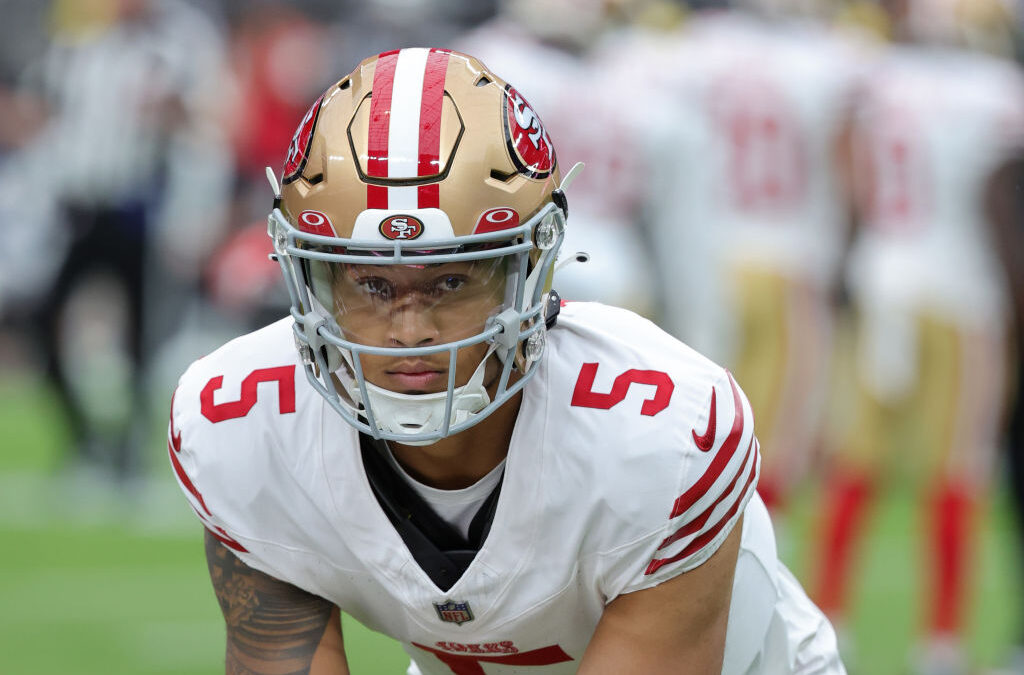
With fans and pundits alike speculating that Jimmy Garappolo was holding the 49ers back, they traded up in the 2021 NFL Draft and selected Trey Lance out of North Dakota State University, with the third pick that year. Lance was supposed to be the quarterback that propelled the 49ers to dominance. Instead, Lance struggled on the field and dealt with injury setbacks. In 2022, Lance was named the starter for the 49ers.
However, an ankle injury sidelined Lance for the entire season. That same year, Mr. Irrelevant, Brock Purdy, came out of nowhere and helped the 49ers reach the NFC Championship Game, before falling to the Philadelphia Eagles. In 2023, Purdy was named the starter as Lance was traded to the Dallas Cowboys. Will Lance rebound? Only time will tell.
Seattle Seahawks: Dan McGuire
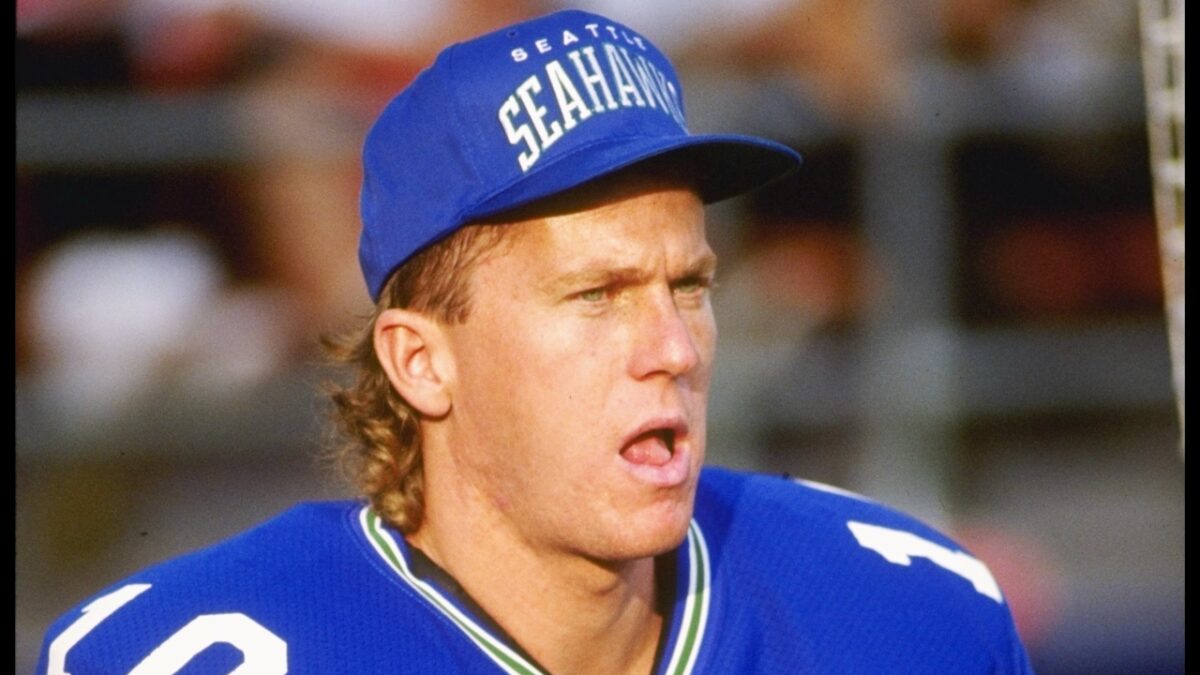
Dan McGuire was drafted 16th overall in the 1991 NFL Draft by the Seattle Seahawks, who wanted to mentor the player they thought would become their next franchise quarterback. When McGuire played, he was very underwhelming, as he threw more interceptions than touchdowns. McGuire threw his first touchdown pass in 1993.
After another miserable season in Seattle, McGuire signed with the Miami Dolphins in 1995 and was out of the league by 1996. Then-Seahawks head coach, Chuck Knox, originally wanted to draft Brett Favre. However, then-Seahawks owner, Ken Behring, vetoed it and McGuire was drafted instead. Favre was drafted by the Atlanta Falcons in the second round and became a legend for the Green Bay Packers, later down the road.
Tampa Bay Buccaneers: Bo Jackson
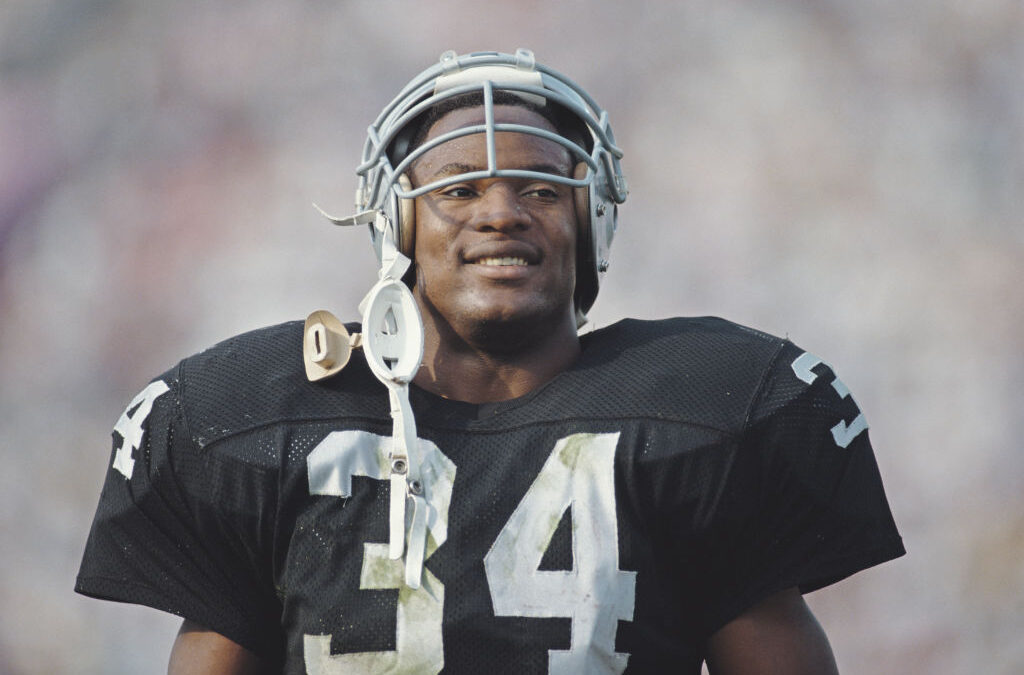
Despite playing a few good years with the Los Angeles Raiders and having a promising MLB career, Jackson was drafted by the Buccaneers, with the first pick in the 1986 NFL Draft but never played for the Bucs. Jackson had issues with the Bucs’ front office for what he believes was then Bucs’ owner Hugh Culverhouse sabotaging his baseball season at Auburn. Jackson was drafted by the Kanas City Royals in the 1986 MLB Draft and played for them for five seasons.
Jackson signed with the Raiders in 1987 and played in the Silver and Black for four seasons until a severe hip injury forced him out of football after the 1990 season. It was a wasted pick by the Buccaneers when Jackson didn’t want to play for them. They could’ve selected guys like Neal Anderson, who was a four-time Pro Bowler, for the Chicago Bears.
Tennessee Titans: Jake Locker
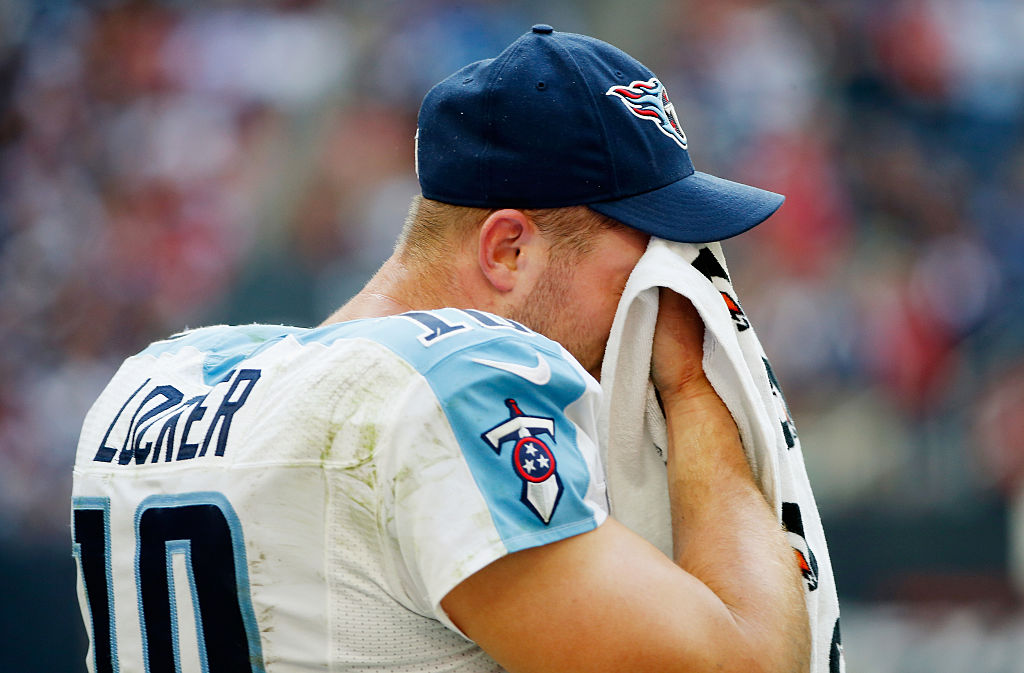
Locker was the star quarterback for the University of Washington, who led the team to a 19-7 victory in the 2010 Holiday Bowl against the Nebraska Cornhuskers. Locker was drafted eighth overall by the quarterback-needy Tennessee Titans in the 2011 NFL Draft. Despite throwing four touchdowns in 2011, Locker’s production dipped for the worst as he threw more interceptions than touchdowns and also dealt with nagging injuries.
Locker abruptly retired after the 2014 season due to losing the passion to play football. To make this pick hurt the Titans more, All-Pro offensive tackle, Tyron Smith was drafted by the Dallas Cowboys right after Locker, and three-time Pro Bowl quarterback, Andy Dalton was drafted in the second round.
Washington Commanders: Heath Shuler
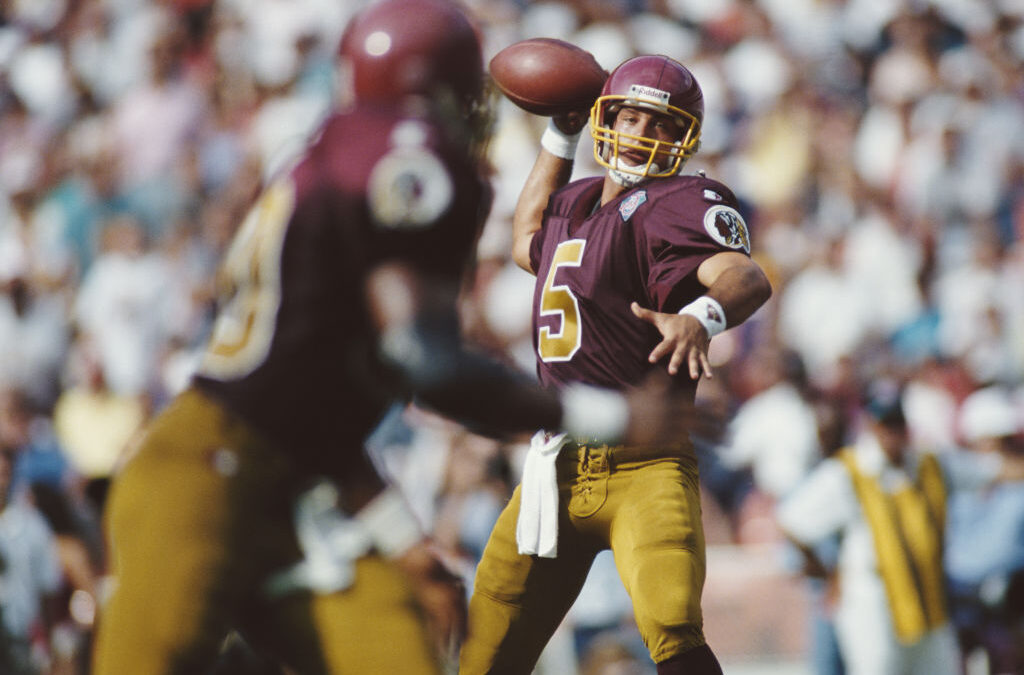
Shuler was a superstar at the University of Tennessee, as he led the Volunteers to three straight bowl games. Needing a new quarterback after a disappointing 1993 season, Washington drafted Shuler with the third pick of the 1994 NFL Draft. Shuler was supposed to be the guy to help Washington return to relevancy after they won Super Bowl XXVI, a couple of years earlier. Instead, Shuler’s performance in the nation’s capital was awful, as he threw more interceptions than touchdowns and was benched for Gus Frerotte, whom Washington drafted 197th overall in the 1994 draft.
Shuler played for the New Orleans Saints from 1997 until 1998 but was out of the NFL after suffering a foot injury during a brief stint with the Oakland Raiders in the 1999 season. Shuler went on to have a real estate career, as well as became a member of the U.S. House of Representatives, from 2007 until 2013.


